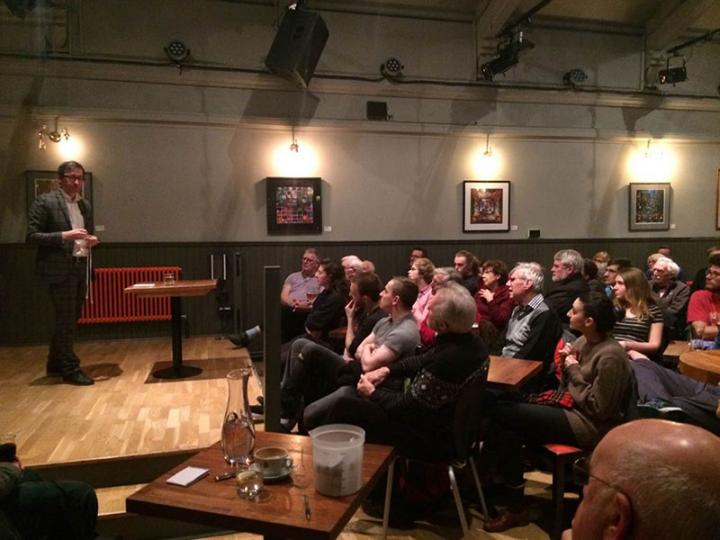Cafe Scientifique, Glasgow
March 2017

"Genome vs Epigenome: The Clay and the Mould" by Dr Doug Vernimmen, The Roslin Institute, University of Edinburgh
Since the discovery of the structure of DNA in 1953 our understanding of how the genetic code influences the development of all living things has made rapid progress, with undoubtedly impressive consequences medical advances. Technology develops alongside our improved knowledge, and our ethical boundaries are constantly being pushed further. But how far can and should we go in exploiting our knowledge? It is thirteen years since The Human Genome project sequenced the entire DNA in a human cell and ever since scientists have been trying to understand the meaning of these three billion letters, which form the human genome. However, it has also become clear that this "Book of Life" can be biologically interpreted in different ways and in this talk I will introduce the meaning of the genome (The Book of Life) and the epigenome (its biological interpretation).
The epigenome represents class of small molecules affecting the way the genetic information is used, and thus not rely on the sequence of the DNA. Epigenetics is the study of these small molecules, which are influenced by the environment (e.g. food, stress, physical activity etc.). The most striking example is the case of identical twins (identical DNA sequence) that appear identical during childhood but become more distinct during their adult life, and even developing different diseases.
The talk will be then followed by open debate together with questions from the public about the specific ethical challenges that result from our increased knowledge of genetics. For example, genome sequencing of newborn babies to screen (potential) disorders, the consequences for health insurance and social interactions in the future.

